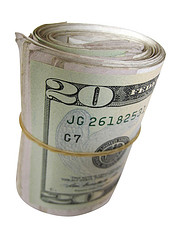 |
You’ve heard the saying before that there are a few guarantees in life: death and taxes. I’d also like to add another: guaranteeing yourself a rate of return. I get asked this question frequently, usually by someone who’s a conservative investor or someone looking for a “sure thing”. This is what I tell them and I am telling you. Call this your money back guarantee. For the majority of readers, this will come into play as most of you have debt in some form or another. Whether it’s your mortgage, automobile, boat, credit cards, college, many Americans have different amounts of debt all at different interest rates. Typically, your consumer debt (credit cards) is going to have the highest interest rates.
Here’s how to guarantee yourself a rate of return: PAY DOWN YOUR DEBT. By paying down your debt you will be guaranteeing yourself the rate of return equal to the interest rate you’re paying on the debt. For example, let’s say you have credit card debt of 15% on a balance of $10,000. Want to guarantee yourself a rate of return of 15%? Pay off your credit card. And fast. Do me a favor. Go on the Internet and search for a minimum payment calculator for credit cards. Many cards are now showing this in the fine print on their statements. For my example, I put in $10,000 debt at 15% interest and a minimum payment of $200. After 30 years, yes 30 years, the total payments made on that $10,000 of debt are $25,573 – and I still owe! An easy way to look at this is let’s say you paid off the card right away with $10,000. Right off the bat, you’ll have saved over $15,000 by not making minimum payments.
If you’re starting anew and this whole paying off debt thing is alien to you, try upping your payments (baby steps) or even getting rid of “luxury” items you don’t need until your debt is paid off, like cable TV, dining out, etc. and put that monthly cable TV, dining out money, etc., toward the debt you owe.
My suggestion would be to start on the highest interest rate debt you have first and then pay down from there. Once you’ve paid down that debt, move to the next highest interest rate and so on. Some people are in favor of starting on the smallest amount of debt first and going from there. The reasoning being that you can build momentum by getting at least something paid off quickly. From a strictly monetary standpoint, you’ll save more money paying down higher debt first, but feel free to use whichever method you prefer. Just do something!
Another idea when you start paying down your debt is to tack on an additional 10% or more on what you’re currently paying and keep increasing that percentage monthly or annually until you can pay it off in full. It’s exactly the same as the 10% toward saving more money, just used to pay down debt quicker.
One debt that you can consider just paying the regular monthly payments on is your mortgage. Nothing wrong with paying it down early – do it if you can. Given today’s interest rates being at historic lows (as of January of 2013) it’s not as big of a deal as 15% in credit card interest rates is. Plus, you can deduct the interest on your mortgage. In addition, with mortgage rates so low, a better investment return may be achieved elsewhere in the market, however, that extra return is not guaranteed. That being said over 15 years or 30 years as most mortgages are, you’re there’s a high likelihood of better returns.
One final caveat to consider is this: once you’d paid off a debt, act as though you still have to make the payment only this time (you guess it) pay yourself first. Continue to pay that “bill” only now direct it to your savings, IRA, college fund, etc.